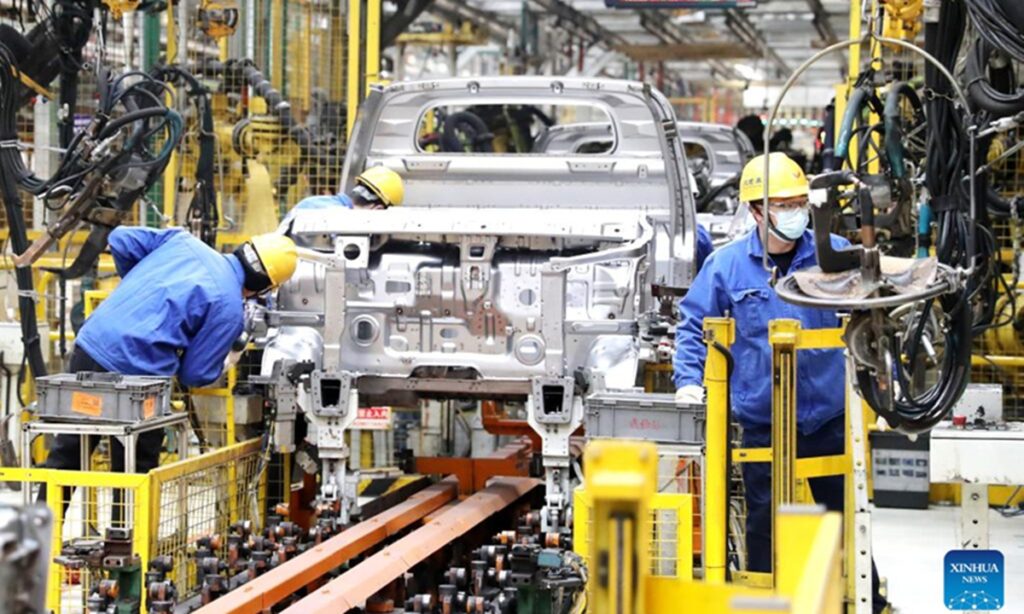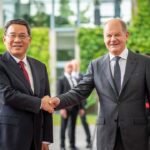US officials are reportedly urging American automakers to “shrink reliance” on auto parts at a time when Secretary of State Antony Blinken just concluded his visit to Beijing and affirmed his objection to “decoupling” from China.
The move, experts said, reflected the US’ political fracturing which is the “biggest obstacle” to China-US relations’ returning to normalcy.
According to a Reuters report, a group of US congressional lawmakers will travel to Detroit to meet with CEOs of Ford Motor and General Motors in order to “shrink reliance” on made-in-China auto parts, such as electric vehicle batteries.
The report also cited sources as saying that some US Republicans plan to meet executives of other auto suppliers including Bosch and BorgWarner.
Ford was cited by the media as saying that it shares the lawmakers’ purpose of strengthening American competitiveness and establishing electric vehicle supply chains in the US.
In contrast, overseas car brands like Tesla have ramped up investment in China in recent years to benefit from Chinese consumers’ booming demand for vehicles. According to data released by the China Association of Automobile Manufacturers, China sold 26.86 million vehicles in 2022, up 2.1 percent on a yearly basis.
The US lawmakers’ move to pressure its carmakers took place after US Secretary of State Antony Blinken arrived in China. During a press conference in Beijing on Monday, Blinken echoed US Treasury Secretary Janet Yellen’s recent remarks that the US should not seek “decoupling” from China.
“There is a profound difference, for the US and for many other countries, between de-risking and decoupling,” Blinken said. “Healthy and robust economic engagement benefits both the US and China. And as Secretary Yellen testified before Congress last week, it would be, as she put it, disastrous for us to decouple and stop all trade and investment with China.”
On the same day, Blinken met with a small group of US business leaders in Beijing to discuss the role private companies can play in supporting China-US relations, according to a statement published on the WeChat account of AmCham China.
“On the one hand, the US government is trying to talk to China to stabilize relations. On the other hand, they are adopting tough measures, including pressuring China in key industries like auto manufacturing. This kind of political fracturing would likely trigger doubts and dissatisfaction in society and public opinion, while bringing difficulties to the US government in executing their policies,” Hong Yong, an expert at the digital real economies integration Forum 50, told the Global Times on Tuesday.
According to Hong, it is hard to predict the tone of the US’ economic and trade policies toward China in the next stage, given the “complicated” situation between China and the US. But seen in the long run, the US is likely to toughen policies against China, he said.
Chen Jia, a veteran macroeconomic analyst, told the Global Times on Tuesday that the US has a strategy of “obscuring decoupling measures” with verbal promises of “not decoupling” from China, but doing the opposite.
The experts also pointed out that if the US government moves to expand its suppression of Chinese enterprises, it would only cause more economic losses to American companies.
Hong noted that China has huge advantages in making electric vehicle batteries. If American automakers turn their back to Chinese batteries, it means they will have to face higher production costs.
(Global Times)




